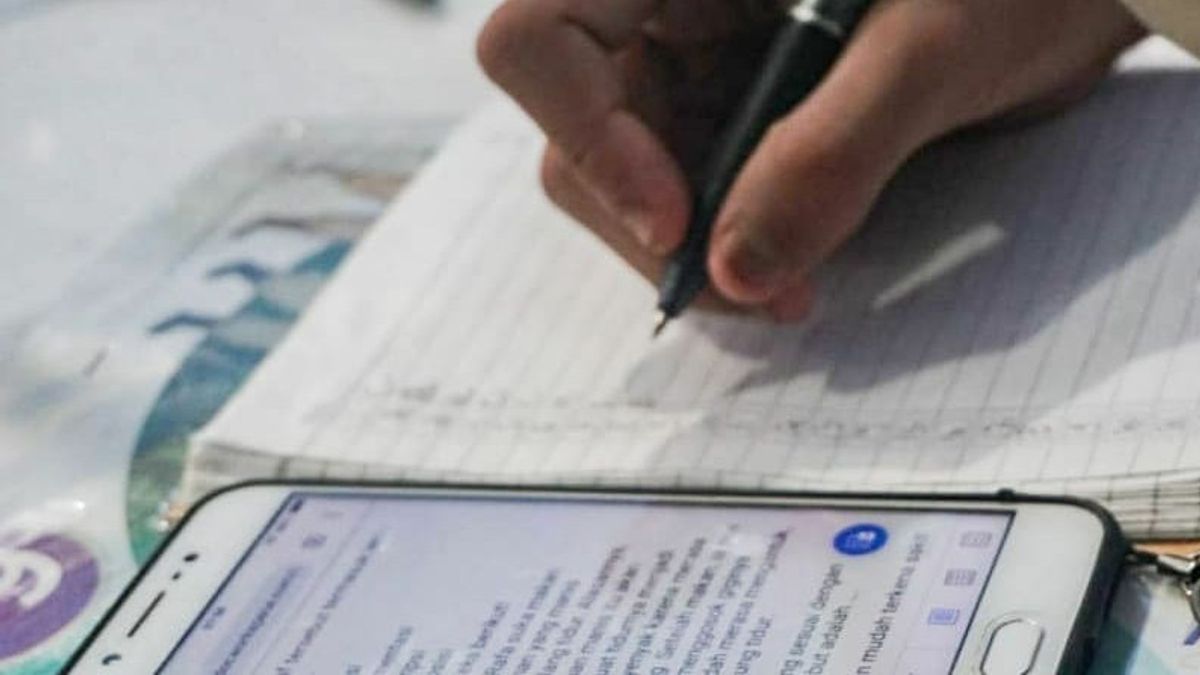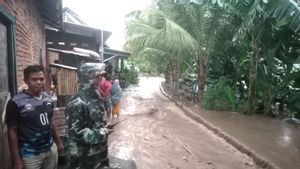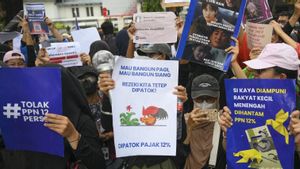JAKARTA - Director of Elementary Schools of the Ministry of Education, Culture, Research, and Technology (Kemendikbudristek), Sri Wahyuningsih, admitted that her party found negative impacts from online learning activities.
As a result of a year of children studying online because schools were closed, Sri admitted that many children were lazy to read books because they felt that access to information was easier to do online.
"There is a new phenomenon of our children learning online. Because it is so easy to access anything, they make it easy. For example, from doing school assignments, our children tend to read fewer books because they are easier to access", Sri said in a virtual discussion, Thursday, June 24.
Actually, Sri considers online learning to have benefits for children, especially at the elementary level, namely, it can increase creativity in utilizing technological features.
However, this activity must continue to be monitored by teachers and parents of each school student so that the use of technology remains at its essence.
"On the one hand, our children are becoming more sophisticated, smarter in using technology and its features. They can easily access and surf with existing facilities, but on the one hand, they also become habitual addicts to the use of technology", said Sri.
"Therefore, to fellow teachers, we hope that there will be efforts to build communication with parents to increase children's creativity in learning", she continued.
SEE ALSO:
On the other hand, Sri continued, online learning can also change children's lifestyles during the pandemic. For more than a year of implementing distance learning (PJJ), children tend to wake up more often during the day.
"Discipline has shifted, the habit of getting up early to go to school during the normal era, in this BDR era our children often wake up late. This is a lot of complaints from parents", she said.
In addition, parents often complain that they have difficulty helping their children learn to replace the tasks that teachers usually do in class.
"Not all parents are able to facilitate our children's learning from home. Then also parents have difficulties, both in terms of academic competence, facilities and infrastructure are also less supportive", she said.
Therefore, Sri said the government encouraged the opening of face-to-face schools in areas with green zones or areas that did not have COVID-19 cases.
"But once again, our current condition is indeed fluctuating, and Limited face-to-face learnings are encouraged for safe areas that are in the green zone", she added.
The English, Chinese, Japanese, Arabic, and French versions are automatically generated by the AI. So there may still be inaccuracies in translating, please always see Indonesian as our main language. (system supported by DigitalSiber.id)

















